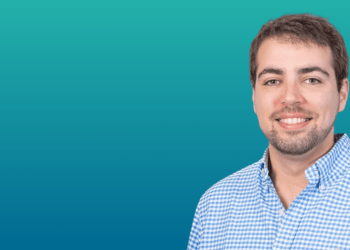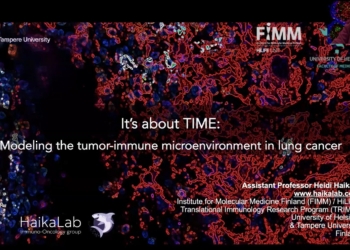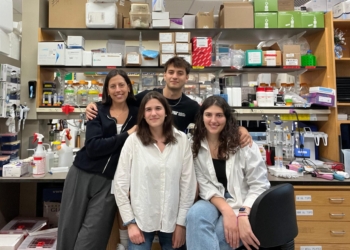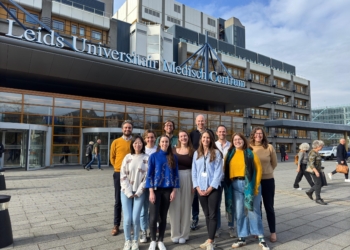With support from Worldwide Cancer Research, we provide Travel Fellowships of up to €3,500 to enable early-career cancer researchers to gain new skills through a short-term visit to a lab or research group in another country.
Our Travel Fellowships Committee review applications every month, and score them on 5 categories: suitability of applicant, quality of host lab, feasibility of the trip, benefit to the home lab, and relevance of the project. It is thanks to their dedication to the EACR and research community that we are able to award as many Travel Fellowships as we do each year – 21 researchers in 2024!
Read on to hear more about each member of the Committee’s motivations for joining the committee, and what they look for when reviewing applications.
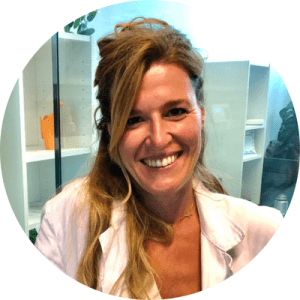 Chiara Ambrogio
Chiara Ambrogio
I have been on the Committee since August 2022, and began my 3-year term as Chair in January 2025. I believe one of the greatest benefits for a cancer researcher spending time in another lab or working environment is the exposure to new methodologies, different approaches to problem-solving, and fresh scientific environments. This creates what I like to call an “intellectual contamination,” where researchers absorb and integrate new ways of thinking. Such experiences are incredibly valuable for their careers, as they broaden perspectives, encourage creativity, and open doors to collaborations that may not have been possible otherwise.
When I review Travel Fellowship applications, I look for proposals that are logical, well-structured, and coherent with the applicant’s main project. A strong proposal clearly explains both the scientific goals and how the planned work fits into the bigger picture, making the case for why the fellowship will be impactful. My advice to applicants is to be very realistic in their planning: only include experiments and goals that are truly achievable within the timeframe and resources of the hosting lab. This kind of careful, grounded approach makes an application stand out.
 Patricia González Santamaría
Patricia González Santamaría
I have been on the Committee since March 2025. During my PhD, I had the chance to undertake a short-term research visit at Harvard Medical School thanks to a travel fellowship from my programme. The Finley lab welcomed me with great generosity, sharing their expertise as one of the world’s leading groups in the study of the yeast proteasome. The experience was so inspiring and fruitful that I secured funding for two additional research stays before completing my PhD. These visits not only advanced my project significantly but also sparked my deeper interest in the ubiquitin-proteasome pathway in cancer, which ultimately motivated me to pursue a postdoctoral stay abroad in the same field. Without a doubt, my time at the Finley lab was a pivotal step in shaping my career as a cancer researcher.
When reviewing Travel Fellowship applications, I focus on two key aspects: the choice of an outstanding host lab that aligns with the applicant’s research goals, and the clarity of the proposal itself. A strong application sets out tasks that are crystal clear, ambitious yet feasible, and shows how the host lab’s expertise and tools will be essential in achieving them. I also look for evidence that the outcomes will make a meaningful contribution to cancer research in some capacity. Being part of the EACR Travel Fellowship Evaluation Committee excites me because it allows me to support junior researchers in their development and witness the creation of collaborations that can shape the future of cancer research. It is rewarding to think that, through these fellowships, researchers gain not only scientific expertise but also personal growth—opportunities I believe should be available to every ambitious young scientist.
 Guillaume Jacquemet
Guillaume Jacquemet
I joined the Committee in 2023, and am also a member of the EACR Early Career Researchers’ Council. From my perspective, spending time in a new lab or working environment offers cancer researchers significant benefits. It broadens scientific perspectives, expands professional networks, and exposes researchers to different ways of thinking and working – skills and experiences that are invaluable whether one remains in academia or transitions into industry.
During my PhD, I had the opportunity to visit Prof. Chris Chen’s lab in Boston to learn microcontact printing. Bringing this technique back to my home lab allowed us to apply it in several publications, making the visit both a rich learning experience and a valuable step in my career development. My advice to anyone preparing a travel fellowship application is to ensure the visit is long enough to be meaningful and to clearly explain what you will do, how it aligns with your research, and how it will benefit both you and your lab after your return. It is also helpful to outline how you will prepare in advance to make the most of the opportunity.
 Lydia Meder
Lydia Meder
I joined the Committee in March 2025. I believe programmes like the EACR Travel Fellowships are incredibly important for early-career researchers. Beyond helping them acquire new techniques and build international networks, which are both major career boosters, these fellowships give researchers firsthand insight into other teams’ cultures and workflows. Such exposure can inspire fresh ideas for improving practices in their home lab and provide valuable guidance for the future, particularly when they go on to lead their own research groups.
When preparing an application, my advice is to avoid simply copying a project description from your supervisor’s grant proposal. Instead, applicants should present a realistic project outline with clear aims that can be achieved within the timeframe of the visit. It is also important to highlight how the experience will benefit both the researcher and their home lab, ensuring the proposal demonstrates practical value and thoughtfulness.
 Petar Ozretić
Petar Ozretić
I joined the Committee in March 2025. From my perspective, spending time in another lab or working environment offers cancer researchers numerous benefits. It allows them to learn new research techniques, build a network of future collaborators, interact with people from different cultures, and improve verbal scientific communication skills, particularly for non-native English speakers. These experiences enrich both their professional and personal development.
My first short-term research visit abroad was to Italy in 2011, funded by an EACR Travel Fellowship. The visit was transformative: much of my PhD research was conducted there, my host supervisor became my PhD co-mentor, and I established collaborations that continue to this day. I believe programmes like the EACR Travel Fellowships are vital for early-career researchers because building collaborations early in one’s career is essential for successful scientific research.
When preparing a Travel Fellowship application, I advise applicants to provide as many experimental details as possible, rather than just general aims and plans. This helps reviewers assess the feasibility of the proposed work and the realisticness of the schedule. Serving on the EACR Travel Fellowship Evaluation Committee is particularly exciting because it offers the chance to discover new trends and topics in cancer research while also identifying potential future collaborations.
 George Sflomos
George Sflomos
I have been a member of the Committee since January 2025, and am also on the EACR’s Early Career Researchers’ Council. When reviewing a Travel Fellowship application, I look for three key aspects that make a proposal stand out: a strong scientific rationale, an ideal fit where the host lab complements the applicant’s goals, and the potential to develop robust skills that will serve as a catalyst for long-term personal research development.
Programmes like the EACR Travel Fellowship are crucial for early-career researchers because they provide opportunities for networking, increased visibility, skill development, collaboration, and exposure to international research environments. What excites me most about serving on the EACR Travel Fellowship Evaluation Committee is the chance to support the next generation of scientists. This role is a privilege, offering a platform to actively contribute to building a more connected, inclusive, and collaborative future for cancer research.


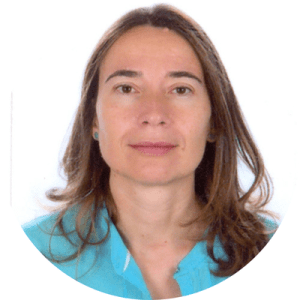 Patricia González Santamaría
Patricia González Santamaría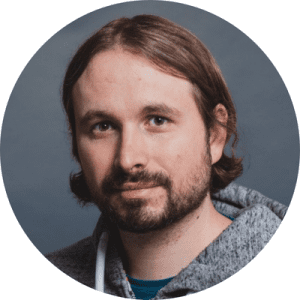 Guillaume Jacquemet
Guillaume Jacquemet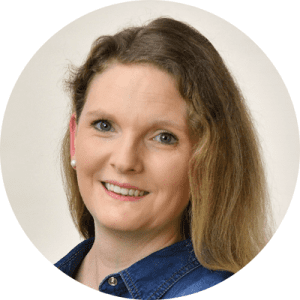 Lydia Meder
Lydia Meder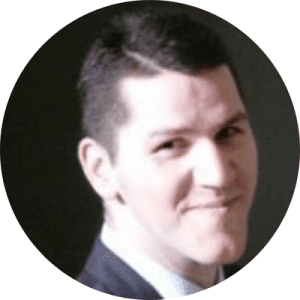 Petar Ozretić
Petar Ozretić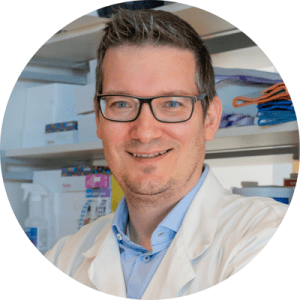 George Sflomos
George Sflomos